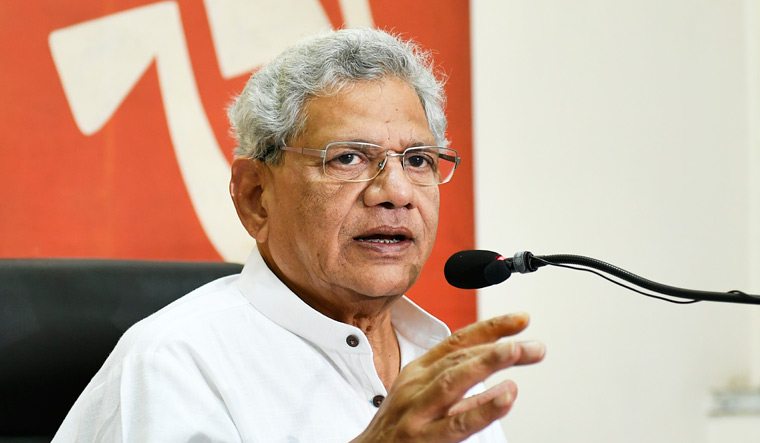CPI(M) general secretary Sitaram Yechury on Tuesday rejected the claims of a new book that China had influenced the Left parties in India to build opposition to the Indo-US nuclear deal. Yechury termed the allegation as ‘totally false’ and said they had opposed the deal to safeguard the interests of the country.
Former foreign secretary Vijay Gokhale in his book The Long Game: How the Chinese Negotiate with India has said that China used its "close connections" with the Left parties in India to “build domestic opposition” to the Indo-US nuclear deal. He also said top leaders of the Communist Party of India (CPI) and the CPI (M) would travel to China for meetings or medical treatment, suggesting that discussions on the deal were held during such trips.
"We did not have any discussion with China. There was not even any need to talk to China. If China was opposing the deal, then why it allowed India a waiver in the Nuclear Supplier Group. In the Nuclear Supplier Group, every decision is taken unanimously. It means China had no objections to the nuclear deal," Yechury told media in Delhi.
He, however, said the claim that the nuclear deal would boost India’s power production was a gimmick to draw the country as a military and strategic ally of the US.
“Today, India has become a junior subordinate partner of the US in military and strategic affairs. Our isolation in Afghanistan is testimony to that. Our foreign policy is now integrated with their foreign policy," he said, adding that the world looks at India as a ‘puppet of America’.
Earlier, Yechury told news agency PTI that the Left parties had opposed the nuclear deal because it was “an agreement which would have compromised India's strategic autonomy and independent foreign policy”.
“It was a deal initiated by the United States to get India aboard on a military and strategic alliance. It had no real value for India''s energy security. More than a decade later, events have confirmed this,” he said.




